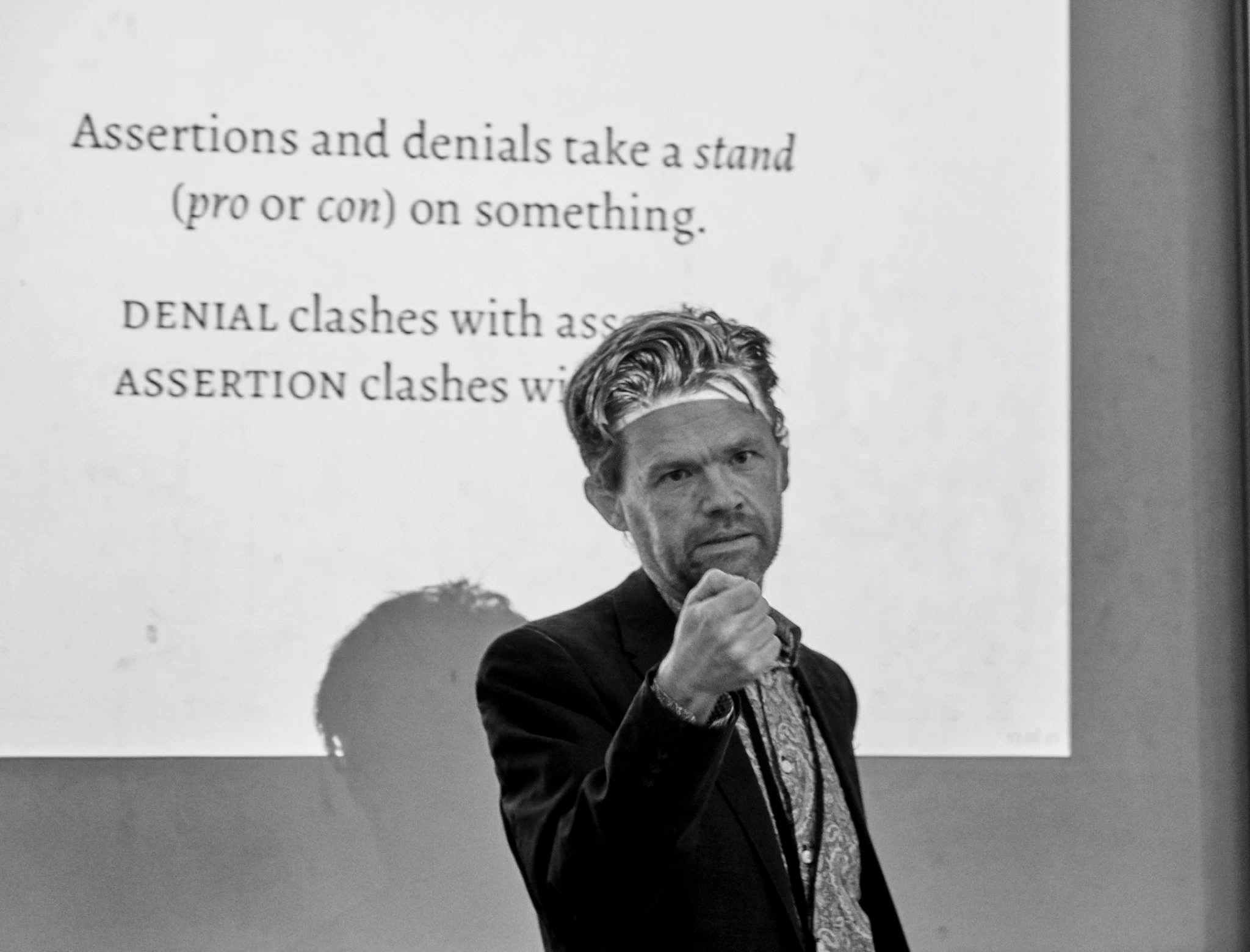PHIL40013: Uncertainty, Vagueness and Disagreement
July 2017
at the University of Melbourne
PHIL40013: Uncertainty, Vagueness and Paradox is a University of Melbourne honours seminar subject for fourth-year students. Our aim in the Honours program is to introduce students to current work in research in philosophical logic.

In 2017, we’re covering the connections between proof theory and philosophy. Here’s the reading list, if you’re interested in following along.
- Introduction and Overview, Background
- Introduction to Inferentialism
- Robert Brandom, Articulating Reasons: an introduction to inferentialism, Harvard University Press, 2000. Introduction and Chapter 1 “Semantic Inferentialism and Logical Expressivism.”
- The Tonk Debate
- Arthur Prior, “The Runabout Inference-Ticket”, Analysis 21:2 (1960) 38–39.
- J. T. Stevenson, “Roundabout the Runabout Inference-Ticket”, Analysis 21:6 (1961) 124–128.
- Nuel D. Belnap, “Tonk, Plonk and Plink”, Analysis 22:6 (1962) 130–134.
- Natural Deduction and Normalisation
- Greg Restall, Proof Theory and Philosophy Draft, Chapter 1.
- Dag Prawitz, Natural Deduction: A Proof Theoretical Study, Almqvist and Wiksell, 1965. Chapters 1-4.
- Harmony and Meaning
- Prawitz “On the Idea of a General Proof Theory”, Synthese 27 (1974) 63–77.
- Michael Dummett: The Logical Basis of Metaphysics, Harvard University Press, 1991. Chapter 9 “Circularity, Consistency and Harmony”
- Gillian Russell, “The Justification of the Basic Laws of Logic,” Journal of Philosophical Logic 44:6 (2015) 793–803.
- Sequent Calculus and Cut Elimination
- Greg Restall, Proof Theory and Philosophy Draft, Chapter 2
- Michael Kremer, “Logic and Meaning: The Philosophical Significance of the Sequent Calculus“, Mind 97 (1998), 50–72.
- Francesca Poggiolesi, Gentzen Calculi for Modal Propositional Logic, Springer, 2011. Chapter 1 “What Is a Good Sequent Calculus?”
- Assertion and Denial
- P. T. Geach, “Assertion”, The Philosophical Review, 74:4 (1965), 449–465.
- Robert Brandom, “Asserting”, Noûs, 17:4 (1983), 637–650.
- Huw Price, “Why ‘Not’?”, Mind, 99:394 (1990), 221–238.
- Ian Rumfitt, “‘Yes’ and ‘No’”, Mind 109:436 (2000), 781–823.
- Multiple Conclusions
- Greg Restall, “Multiple Conclusions”, pp 189–205 in Logic, Methodology and Philosophy of Science: Proceedings of the Twelfth International Congress, edited by Petr Hájek, Luis Valdés-Villanueva and Dag Westerståhl, KCL Publications, 2005.
- Florian Steinberger, “Why Conclusions Should Remain Single,” Journal of Philosophical Logic 40 (2011), 333–355.
- Truth Values and Proof Theory
- Greg Restall, “Truth Values and Proof Theory,” Studia Logica, 92:2 (2009) 241–264.
- Dave Ripley, “Bilateralism, Coherence and Warrant,” pp. 307–324 in Act-Based Conceptions of Propositional Content, edited by Friederike Moltmann and Mark Textor, Oxford University Press, 2017.
- Beyond Declaratives
- Nuel Belnap, “Declaratives are Not Enough”, Philosophical Studies, 59 (1990), 1–30.
For further information, contact me. To participate, check the handbook.
